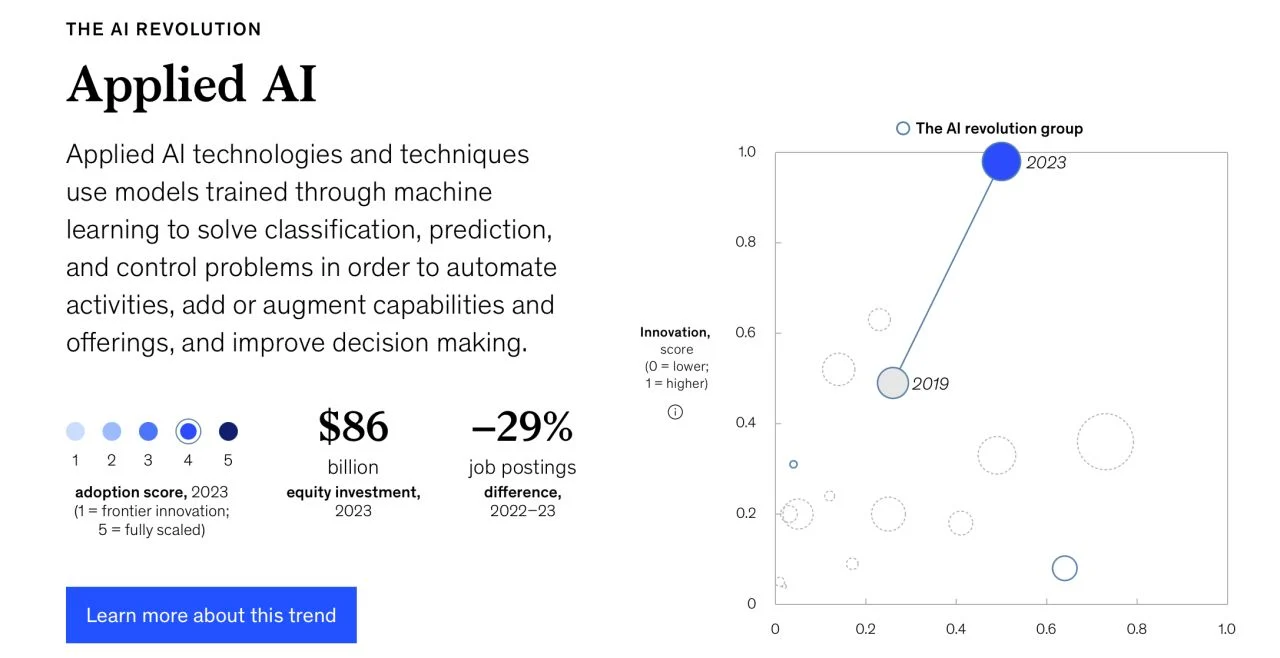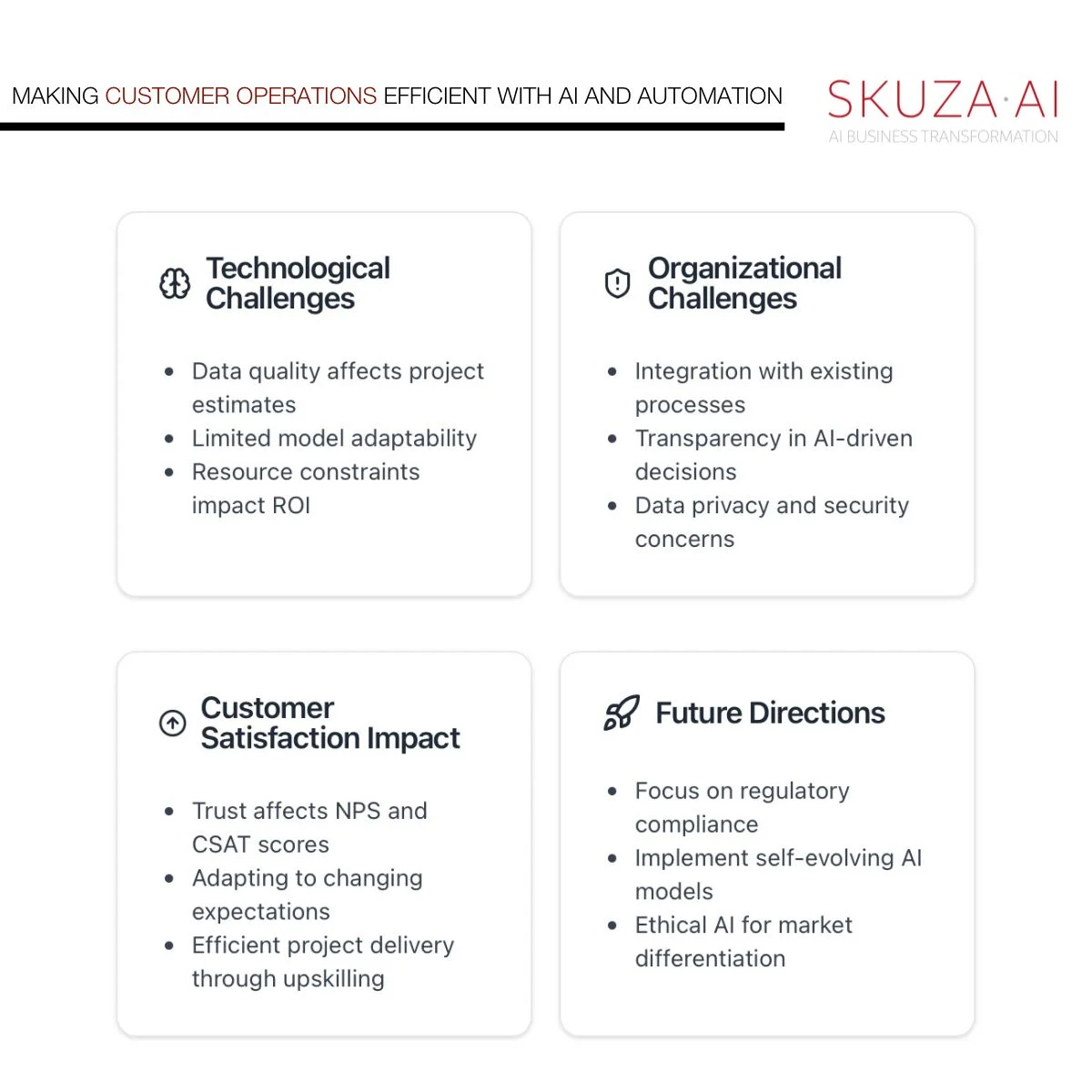Challenges of Integrating AI in Software Project Planning
I came across an interesting article focusing on the challenges of integrating AI in software project planning. I think it is going to have a huge impact on software houses and tech companies, particularly in terms of customer satisfaction, Net Promoter Score, and Customer Satisfaction Score.
Tech companies (technically every company on the planet) and software houses need to be super careful! Here’s the perspective I am happy to share:
1️⃣ Technological Challenges and Customer Impact:
- Data quality issues can lead to inaccurate project estimates and timelines, potentially disappointing customers and lowering CSAT scores.
- Limited model adaptability may result in inflexible project management, reducing the ability to meet changing customer needs and potentially decreasing NPS.
- Resource constraints, including computational power and infrastructure costs, are very important if projects are to be sustainable. Software houses need to consider this in ROI calculations.
2️⃣ Organizational Challenges Affecting Customer Relations:
- Difficulties in integrating AI with existing processes. If a company wants to use AI in software development, it needs to master process automation.
- Transparency issues in AI-driven decisions may erode customer trust, critically affecting both NPS and CSAT scores. Bias and explainability are key here.
3️⃣ Implications for Customer Satisfaction:
- Properly addressing data privacy and security concerns is crucial for maintaining customer trust and high NPS scores.
- Developing (for instance, fine-tuning) AI models that can adapt to changing project landscapes can significantly enhance the ability to meet customer expectations, boosting CSAT. Tech companies probably should season their own set of AI models instead of using those generally applicable.
- Upskilling project management professionals in AI technologies can lead to more efficient project delivery. Constant training, which requires investments, seems critical.
4️⃣ Future Directions for Enhancing Customer Relations:
- Focusing on environmental challenges and regulatory compliance seems a must. It can help tech companies build trust with customers.
- Implementing dynamic, self-evolving AI models can lead to more accurate project estimates and timelines, enhancing customer satisfaction. In other words, historical project data need to train AI models so the tech company monetizes context.
- Ethical AI development and implementation can differentiate a tech company in the market, potentially leading to higher NPS and CSAT scores.
Here is the link to the full article: Challenges of Integrating Artificial Intelligence in Software Project Planning: A Systematic Literature Review
Trends Lookout — Applied AI with Cases and Comments
Applied AI is revolutionizing how businesses interact with customers, boost sales, and improve service quality. By implementing AI in practical applications, companies are seeing significant advancements in customer satisfaction and operational efficiency.
Key Trends Impacting Customer Experience and Sales
1️⃣ Generative AI for Customer Service
- AI-powered chatbots and virtual assistants are transforming customer support, providing quick, accurate responses and improving satisfaction levels.
- Sales teams are leveraging generative AI for personalized pitches and content creation, enhancing engagement with potential clients.
2️⃣ Emotion AI for Better Customer Understanding
- By interpreting customer emotions, businesses can tailor their approach, leading to more empathetic and effective interactions. This technology helps in identifying and addressing customer pain points, ultimately improving overall satisfaction.
3️⃣ Multimodal AI for Enhanced Customer Interactions
- Integration of text, voice, and visual data allows for more natural and comprehensive customer interactions across various touchpoints. This versatility improves the customer journey, from initial engagement to post-sale support.
Impact on Sales and Customer Perception
- Increased Sales Efficiency: AI-driven insights help sales teams focus on high-potential leads and optimize their strategies.
- Improved Service Speed and Accuracy: Automated responses and AI-assisted support reduce wait times and minimize human error.
- Enhanced Customer Insights: Deep analysis of customer feedback and behavior patterns leads to more informed business decisions and product improvements.
Challenges and Considerations
- Maintaining the Human Touch: While AI enhances efficiency, businesses must balance automation with human interaction to preserve empathy and build genuine relationships.
- Data Privacy Concerns: As AI relies heavily on customer data, ensuring privacy and building trust is crucial for maintaining positive customer perceptions.
- Seamless Integration: Businesses need to integrate AI solutions smoothly with existing systems to provide a cohesive customer experience.
Scaling AI seems like the biggest point on the global roadmap, but the cases are there. Those who focus on solid implementations are now critical to make this trend a reality.

Did you find it interesting? Subscribe to my newsletter for more weekly insights:
[mailerlite_form form_id=9]


